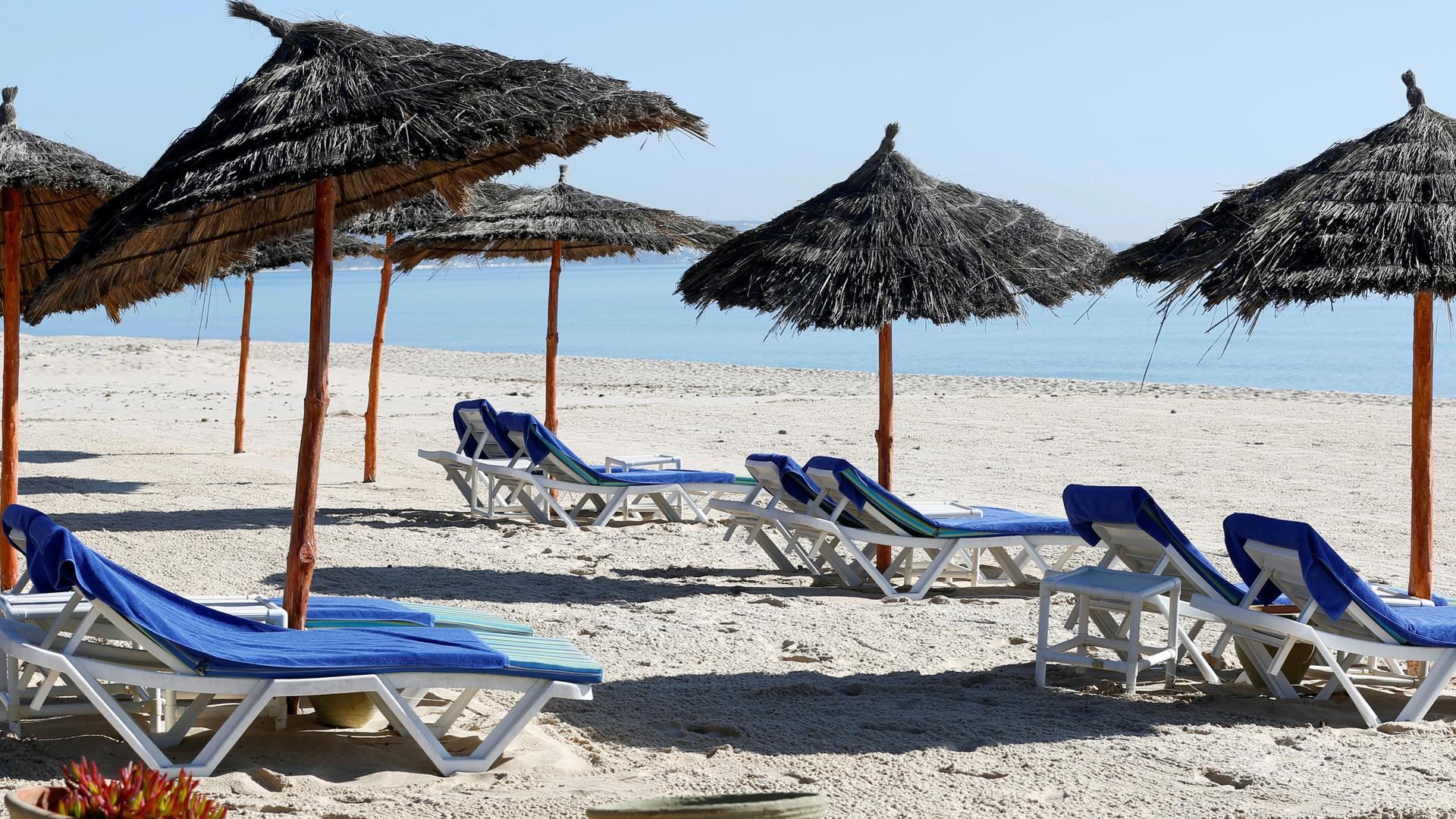For tour operators and the hospitality sector in Tunisia, March through June is typically one of the busiest times of the year.
The country has been trying to revamp its tourism industry in recent years, encouraging international tourists to visit its scenic beaches, explore its ancient Phonecian and Roman ruins, and take camel rides in the Sahara Desert.
“2020 was set up to be our best year in terms of sales and numbers of tours, and even size of tours. We had big group tours coming,” said Joshua Mok, who works at Mosaic North Africa, a Canadian company that offers private tours in Tunisia, Algeria, and Morocco.
Related: ‘Travel bubbles’: The plan to save the tourism industry
Then came the coronavirus. Tunisia reacted quickly, shutting international borders and enacting strict national lockdowns and curfews.
“We basically had the confinement starting when we only had 25 cases,” said Jaber Belkhiria, a Tunis-based epidemiologist with the One Health Institute, part of the University of California, Davis. “I guess it was because we saw what was happening in neighboring countries like Italy, and we wanted to be proactive and act fast.”
The quick action seems to have paid off. While coronavirus infections have soaredin other North African countries, as well as other parts of the world, Tunis has recorded little more than 1,200 cases, and 50 people have died.
But the economic toll of the pandemic and closure measures have been heavy, compounded by high unemployment, which prompted protests in recent weeks. This month, Tunisia’s Prime Minister Elyes Fakhfakh said the economy could shrink by 6% in 2020.
The pandemic has been especially hard on Tunisia’s tourism and hospitality sectors, which were already struggling to recover from a spate of terrorist attacks in 2015.
“[We are] having to either postpone or cancel a lot of these tours,” Mok said. “It’s been really tough on our business,” he added, noting that seasonal tourism workers have also taken a hit.
Related: Costa Rica is betting on ‘staycations’ to keep tourism afloat
Now, the country is trying to recover what’s left of the tourism season. On June 27, Tunisia reopened the country’s international land, sea, and air borders.
Tunisia’s Minister of Tourism Mohamed Ali Toumi has tried to reassure foreigners that the country is ready and safe for tourism while promoting the country’s handling of the COVID-19 pandemic.
“Come and enjoy our beaches, our seas, our beautiful sun, our gastronomy, our history, our heritage,” said Toumi in a recent promotional tourism video. “We provide you with the best conditions and we guarantee the best health precautions.”
While countries like the United States are facing new travel barriers due to rising COVID-19 cases, Tunisia is among the few countries whose nationals can travel to the countries in the European Union.
Related: EU calls for European borders to reopen to save tourist season
Tunisia recently created its own color-coded system to determine which nationals can enter, based on the state of the coronavirus pandemic in their home countries. Tourists from “green” countries with a low coronavirus prevalence, such as Italy and France, will be able to travel freely, while travelers from “orange” countries, such as Canada and the United Kingdom, will be subject to special measures, including a requirement to present a negative PCR COVID-19 test.
Nationals from countries not listed, including the US, will not be allowed to enter the country for tourism.
“At least for Americans, it’s not possible to book a tour even though Tunisia is making a push.”
“At least for Americans, it’s not possible to book a tour even though Tunisia is making a push,” said Mok, a Canadian citizen who typically lives in Tunisia but has been stuck in the US since March due to the pandemic. His company mostly relies on clients from the US, UK, and Canada.
Still, the pandemic could present opportunities for domestic tourism and for smaller, alternative businesses.
“I see coronavirus as a potential positive factor,” said Markus Breitweg, co-founder of Le Lemon Tour, a biking tour company in Tunis. “People could [become] aware that mass tourism has its limits.”
After being closed for two months, the biking company has recently reopened. While foreign visitors have been down, Breitweg has noticed more local interest in bike rentals and tours.
“The advantage, really, of biking is that you basically aren’t in any crowds. Because you are on your own. You are in nature. So the risks to yourself and also the risks to others is really limited,” said Breitweg, who hopes to expand the tours outside of Tunis.
Still, despite the coronavirus prevention efforts by Tunisia’s tourism industry, including limits on hotel capacity, reopening to international tourists isn’t without concerns.
“There might be risks,” said Jaber Belkhiria, the epidemiologist. “Some countries [that] are ranked as ‘safe’ such as Italy or France could bring more tourists that might be asymptomatic.”
Some countries that have already reopened to international tourism, like Seychelles, have recorded spikes in COVID-19 cases.
